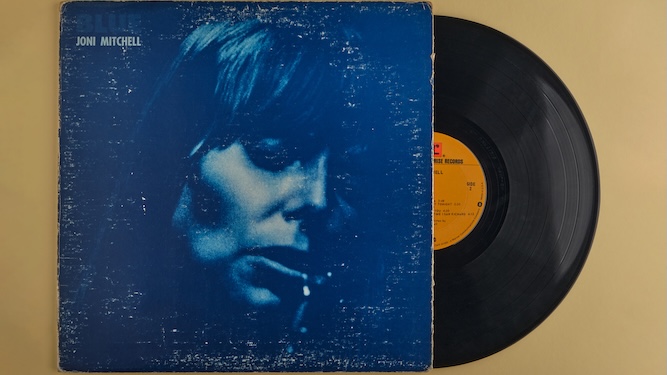OH, you don’t like the right albums? Then a calm, intellectually grounded explanation of why you should will surely change your benighted mind:
Joni Mitchell, Blue, 1971
Lauded as the first ever piece of art about feelings, its popularity is surprising given its crippling sadness, like Leonard Cohen without the laughs. Uses unusual open tunings. Be aware anyone pointing this out will lurch into a discussion of jazz without fair notice.
Nas, Illmatic, 1994
It’s tough to identify with these raw raps from the crackhead streets of Queens, even if you’re from Rotherham. But it is ridiculous not to know it passed the torch from Rakim, redefined the genre and had a one-take recording of a song which any rapper should be expected to do when performing live. Because it is sort of talking.
Miles Davis, Kind of Blue, 1959
If there’s one jazz record you’re supposed to like, it’s this one, and you don’t, and according to a bearded man at a party this is your fault. It has Coltrane on it. It has sax that you, who only hears the instrument at Ibiza Classical evenings when on a pill, can hardly recognise. He feels you really need to seek out the original vinyl and apologise to it.
Kate Bush, Hounds of Love, 1985
Half of this album, a boring drone from just over your shoulder in the record shop informs you as punishment for being a woman in a record shop, is a conceptual suite. About a woman drifting in the sea. Not the most thrilling concept, you think but don’t say while flipping through post-punk LPs, and Stranger Things has gone to shit as well.
Talking Heads, Remain in Light, 1980
Fun as it is to watch David Byrne gyrating in a big silly suit like he’s on It’s A Knockout, it’s all they’re really good for. This record’s off-kilter rhythms are as enjoyable as seasickness or is having the Fela Kuti influence explained to you by the whitest of white men while you’re trying to dance to the ‘same as it ever was’ song from the Kermit meme.
King Crimson, Red, 1974
Today he covers songs on YouTube while his topless wife Toyah sings along, but to those for whom prog was essentially philosophy set to music, Robert Fripp’s work with King Crimson is the icon. As will be explained to you by a middle-manager who you can’t tell to shut up because he’s giving you a lift. You pass the journey by promising yourself you will only ever listen to Red by Taylor Swift as revenge.


